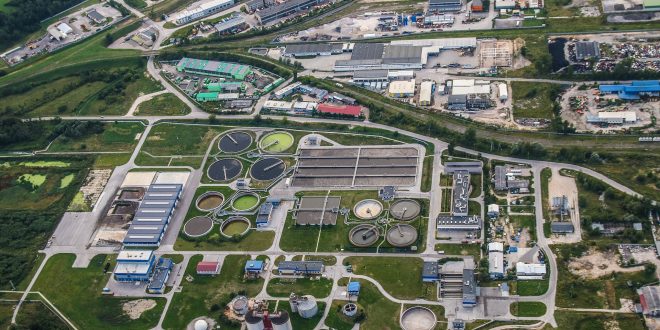In the United States, every year, municipal plants consume in excess of 30 terawatt hours of electricity during the treatment of wastewater. According to the Department of Energy, this translates to an annual expense of around $2 billion for electricity alone.
The demand for clean drinking water will only increase. So what can be done about this huge energy expenditure? Here are some of the ways in which modern wastewater treatment plants can reduce their energy usage or capitalize on their own energy-generating potential.
1. Roll out More Wastewater Reuse Programs
It may be hard to believe, but many cities, even in well-developed countries like the United States, only recently began reusing municipal wastewater. California’s Orange County began recycling “dirty” water for non-potable needs in the 1970s. It wasn’t until 2008 that the county’s wastewater recycling program began reintroducing thoroughly-treated wastewater back into the drinking water supply.
This is an important reminder that “treating” wastewater isn’t always the same thing as “reusing” it. Cities can, and should, do a better job of educating the public on the environmental and practical benefits of drinking previously-used wastewater as part of municipal recycling programs. In case after case, residents tend to reject such projects when they come up for a vote, as they did in Queensland, Australia.
Scientifically treating wastewater and then reintroducing it makes it available again for a variety of potable and non-potable purposes. These include drinking, bathing, watering crops, combating fires and cooling heavy machinery.
Recycling water in this fashion will help keep us from tapping into natural resources unnecessarily and eliminate a substantial amount of pollution at the same time.
To look at it another way, wastewater is the only source of water that actually grows as the population does. Reusing it just makes good sense. And in terms of energy usage, decentralized water recycling programs can keep reclaimed water at its source and help municipalities avoid building energy-intensive reverse or uphill water pipelines.
2. Build Wastewater Treatment Plants That Generate Energy
There is a substantial amount of potential energy within wastewater and sewage. If just 20% of this potential energy was recaptured from domestic wastewater, the world’s entire water treatment infrastructure could become self-sufficient in terms of the energy it uses.
Biogas is one way in which treatment plants can “give back” some of the energy they require for operation. When organic waste breaks down, including sewage, it releases methane. Using a process called thermal hydrolysis, sewage treatment plants can maximize and then capture the methane given off.
The resulting biogas could be put to use right away on-site to meet energy needs. Alternatively, it can receive further processing and then be used in similar fashion to natural gas. Even the solid byproducts of biogas production are useful — in this case for improving crop and soil health. It also reduces the agricultural sector’s reliance on manufactured chemical fertilizers.
3. Use High-Efficiency Equipment and New Techniques
One of the reasons why wastewater treatment plants use so much energy is because their mechanical infrastructure has to be in almost constant operation.
For instance, treatment plants feature high-capacity blowers that continually pump air into bacteria-rich aeration chambers. These blowers require consistent and reliable power around the clock. The wastewater treatment plant in Longview, Texas, after switching to high-efficiency blowers, cut more than 16,570 kilowatt hours from its annual energy budget.
The Environmental Protection Agency notes that achieving greater energy efficiency at municipal treatment facilities can help avoid blackouts and brownouts and other power grid disruptions. Operating more efficiently at this scale will also slow construction of new power plants.
The EPA report “Energy Efficiency in Water and Wastewater Facilities” showcases many stories where municipalities realized financial and energy savings that more than made up for the initial cash outlay. Rome, New York implemented energy-efficient lighting, building envelope improvements, boiler efficiency upgrades and other modern systems over several years, for an ongoing savings of more than $100,000 per year through energy use reduction alone.
Saving energy in wastewater treatment extends to well beyond the facilities themselves, too. Even small steps like using a rubber membrane in a wastewater treatment facility can reduce energy usage, as rubber membranes do not increase backpressure and put less strain on the blowers in treatment facilities.
Civic planners can get involved, too. Green areas, green roofs, rooftop gardens and bioswales in cities all help reduce the amount of runoff that treatment facilities must process.
4. Go Solar and More
Lest we forget, wastewater treatment plants can, should and regularly do turn to solar power to meet their energy needs. Sprague, Connecticut is just one recent example of this type of project. The local facility’s new 137-kilowatt solar array now provides around 80% of the electricity the plant needs to function.
There are many ways to reduce energy consumption at the residential, commercial and municipal levels. Recycling and reusing wastewater properly, reclaiming energy production potential and using new technology and green energy to run our water treatment plants could put a big dent in our collective energy use — and help us manage another precious resource far more conscientiously.





